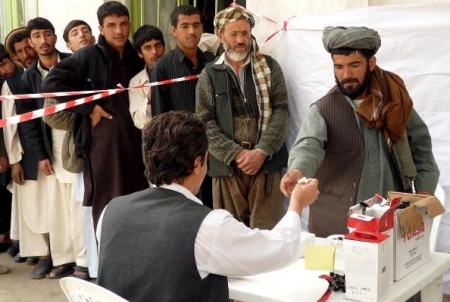
The initial goal of the U.S. invasion of Afghanistan was to capture Osama bin Laden and to destroy al-Qaida. However, after the destruction of the Taliban, NATO forces changed their objectives and stayed behind to rebuild the country, train its armed forces and introduce democracy.
After more than 11 years of war, it is clear that the latter goal was not accomplished. It is still debatable whether democratizing Afghanistan could have been done using other methods or whether it was necessary in the first place.
If one were to assume that the theories of famed American political scientist Samuel Huntington — who represents the way of thinking of many U.S. officials and indeed the U.S. government itself — were true, the West has long deemed that its core values, especially democracy and freedom, are universal and non-negotiable: Democracy is the marker of the evolution of the state — there is nothing else to aspire to beyond it. Modernization and Westernization are inevitable, and local culture can only be tolerated if it complements those universal values.
The 2004 Afghan presidential elections could be seen as evidence that the NATO coalition had indeed succeeded in its aims. Voter turnout was close to 80 percent, despite the Taliban threatening voter repression and attacks on polling stations. “It was a moral and psychological defeat for the Taliban,” concluded Gen. Eric Olson, commander of the U.S. Special Forces.
However, the events that followed those elections exposed the folly of thinking that a single election could transform a country with a feudal-tribal society into a democracy. The 2006 uprising of the “neo-Taliban” erased that hope from the minds of NATO leaders. The 2009 elections were a complete disaster. Voter turnout was just 40 percent but was significantly lower in Taliban-controlled areas. In some voting districts, not a single vote was cast. Over 135 attacks, killing nine civilians and 14 security forces, were launched on voting centers. Many considered the election a sham, rigged by Afghan President Hamid Karzai’s supporters.
Less than four years after that election, Karzai’s government is based only on the strength of the U.S. army. In the pro-Taliban south and the anti-Taliban north, tribal and religious leaders enjoy much more legitimacy than their democratically elected counterparts can ever hope for, and their rules are followed more closely than government mandates. All of this calls into question whether the U.S.-led effort to introduce democracy in this country made any sense.
In the foreword to his book on Afghanistan, [“The Races of Afghanistan”] 19th century author Henry Walter Bellew wrote something that rings just as true today as it did in the 1800s:
“For, to know the history, interests, and aspirations of a people, is half the battle gained in converting them to loyal, contented, and peaceable subjects … now that our armies are in possession of Kandahar and Kabul … “
Learning how Afghans think and unraveling the incredible complexity of their society — split along ethnic, cultural, tribal and political lines — is the key to winning support for a government that could be a viable alternative to the Taliban. Sadly, it is too late to try now.

Leave a Reply
You must be logged in to post a comment.